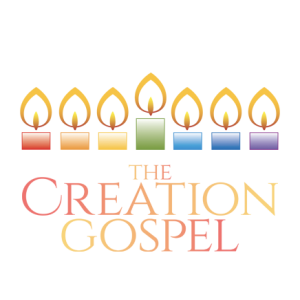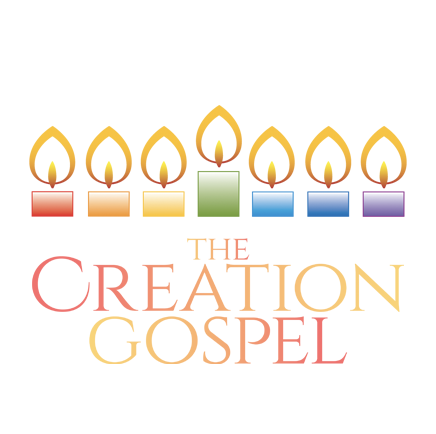|
I've been thinking a lot lately about greed. That's because in our short break from Song of Songs, we've studied salt covenant in our weekly Zoom classes. Although it's only about eight weeks of material, it's been packed with very practical ideas to improve our spiritual life today.
In particular, what's been weighing in my thoughts is the premise that unsavory salt, the kind that has lost its savor, is at its root, greed. In short, our study has dug into Yeshua's question about salt losing its flavor. How do you make it salty again? The salt had savor at some point, but then lost it.
If you review the last newsletters, Scripture specified that salt is something that comes from within a person. It is a softness and tenderness toward the Word and one's neighbor. It's the best part of our sacrifices for the Kingdom and Covenant that fulfills it, and without the salt, commandment-keeping is lacking:
- Every grain offering of yours, moreover, you shall season with salt, so that the salt of the covenant of your God shall not be lacking from your grain offering; with all your offerings you shall offer salt. (Le 2:13)
We can't put unsalty salt on a sacrifice or work of the Word:
- “Salt is good; but if the salt becomes unsalty, with what will you make it salty again? Have salt in yourselves and be at peace with one another.” (Mk 9:50)
“Have salt in yourselves → be at peace with one another.”
So if we lose saltiness, we aren't tender any longer.
We can actually keep the letter of the commandments, but when it doesn't come from a tenderness within us, it doesn't create peace. That's salt without savor, and those commandments are not acceptable sacrifices for the Covenant, which must not be lacking salt. Defective salt is like a defective animal. No go. Unaccepted.
- Therefore, if you are presenting your offering at the altar, and there remember that your brother has something against you, leave your offering there before the altar and go; first be reconciled to your brother, and then come and present your offering. (Mt 5:23-24)
Leave the gift at the altar, go get salty again, make things right with your neighbor, then return, and the gift will be accepted because it came from tenderness toward the Father, which in turn made you tender toward His creation, your brother:
- “If you do well, will not your countenance be lifted up? And if you do not do well, sin is crouching at the door; and its desire is for you, but you must master it.” (Ge 4:7)
Kain was told to put his happy face on with Abel, and then his gift would be accepted. Kain had short-changed the sacrifice by not bringing his best. He didn't bring first fruits; instead, he brought "of the fruit of the ground." Produce, just not his best. Begrudging, for sure. Instead of repenting of his greed, putting on his happy face, and bringing his best, he simply took out his anger and frustration with Elohim by killing his brother.
Put another way, we can be about the Father's business diligently, keeping His commandments, and because of worry and distraction about our income, we find ourselves self-employed, like Martha, who resented Mary's relationship to Yeshua in receiving the Word. Daily we have to remind ourselves to make an "upper room" in our twenty-four hours to simply sit before the Father's Word and soak up His Presence in study and prayer.
Doing things is important; it is the sacrifice we make for our families and the Body of Messiah. Without the salt from within, however, those works of the Covenant are lacking. The very meaning of sacrifice is "draw near," korban.
Does doing a commandment draw us closer to the Father?
If not, it may have become our business instead of His. That's unsavory salt and greed.
When we salt the mitzvot of the Covenant, we exert ourselves, just as savory salt comes from “within yourselves” to make peace with others. We must exert ourselves commensurate with our “wealth.” While money is the example, the object of our desires is obtained with currency, which can be money, yet we might traffic for influence, power, manipulation, etc. to obtain our desires. Money is simply the currency most commonly used for the transaction to satisfy our greed. Greed is undisciplined and un-discipled desire. Sin. Idolatry of self-serving.
It is easy to construe greed as a desire for money, or mammon, yet the less tangibles are nonetheless greedy: knowledge, esteem, security, attention, pleasure, etc. I have seen believers so drunk on the power of Scriptural knowledge that they habitually beat up their fellow servants with the Word. It is no longer the Father's business; instead, they have become self-employed.
They use His Word not to draw people near the Father, but to enrich themselves. Maybe with donations, maybe with product sales, maybe with just a shot of self-esteem in soliciting invitations to speak or posting controversial statements designed to create a public dust-up for attention.
How can we know when someone is unsavory and self-employed, but they've hung out the shingle of "Kingdom Business"?
It's more important to know when WE'VE done it.
Remember, unsaltiness is an inside problem. You won't always see it on the outside. The sacrifice may look just perfect on the altar.
And Yeshua took donations...a group of women followed him throughout his ministry all the way to the upper room, "ministering to him." They loved him all the way to death (Mt 27:55; Mk 15:41; Lk 23:49,55) Yeshua said controversial things, was a highly-sought-after speaker, and he was definitely in the middle of public dust-ups.
The difference is that Yeshua always did what he did and said what he said on actual Kingdom business. He was drawing people closer to the Father or exposing their self-employment in the commandments. His Spirit will help us to search our own hearts so that we don't become "moneychangers," encroaching on the holy places for our personal enrichment and deceiving people who think we're there to serve and help them draw close to the Presence. Instead, we're self-employed, working on our self-esteem needs or securing donations to fuel the fire of our pleasures.
This is something ministries need to soul-search daily, and it's something a royal priesthood should soul-search daily. That's all of us.
As in my example of the "Nuts" in last week's newsletter, sometimes we have to decide whether we're occupied in interests and ministry we've chosen according to our desire, yet the actual fruit ready to harvest is in a different area. It will be a true sacrifice to do business there, but it's where the Father needs us, not where we want to work. At first.
The phenomenon is that if we will adjust our desire to His, sell out completely to draw near to the Father, our desire will actually change. Really! It will!
This is what Yeshua tried to tell the rich young ruler when he told him he still lacked one thing even though the young man had kept all the commandments since he was a boy. He lacked the savor of salt with his commandment-keeping. The young man did not have enough faith in The Word, Yeshua, that the desire in his heart for his wealth would be changed by selling it:
- "But he was sad at this word, and went away sorrowful, for he had great possessions." (Mk 10:22)
Salt is faith in the Word. It is what prevents us from becoming self-employed in unsavory commandment-keeping. The rich young man would never know the wonder and joy of finding a coin inside a fish's mouth or sharing a simple breakfast on the beach with the resurrected Messiah. A righteous king.
A truly rich man is one who is satisfied with what the Father puts in his hand from above, whether little or much; a truly poor man is one who is never satisfied with what he possesses below, whether little or much.
A truly rich man rejoices in exerting himself and his resources in his Father's business; a truly poor man goes away sad.
Yeshua asks what we are anxious, worried, sad, and distracted about, even in doing the commandments, for they are how we withhold ourselves from him. These things dilute our salt. They may be our desire, but they are not the "best part" that brings peace, the part that we spend at his feet learning, talking to him, lingering in his Presence. This requires us to exert ourselves to bring the lacking salt. Maybe it means selling off some wrong ideas about things that mean a lot to us.
Mary sat at Yeshua's feet. She had to look up to him before she went to work. Martha did it backward. She worked, but because she was self-employed that day, she took out her frustration by blaming Mary and looking down on Yeshua's willingness to "discipline" her sister. She couldn't see he was discipling them both that day. She needed to look up first with joy in his presence.
Start with salt, the best part within. What we do each day is His business.
When we go into the world to give charity, be kind to others, speak peaceably, reconcile the world to their Creator, and shine the light of obeying the commandments, it will not be a labor of convenience. If we have prepared with salt, though, the exertion will be rewarding and change our taste.
Do I mean how we taste to others?
Or how we savor our labor for the King?
Yes.
|























